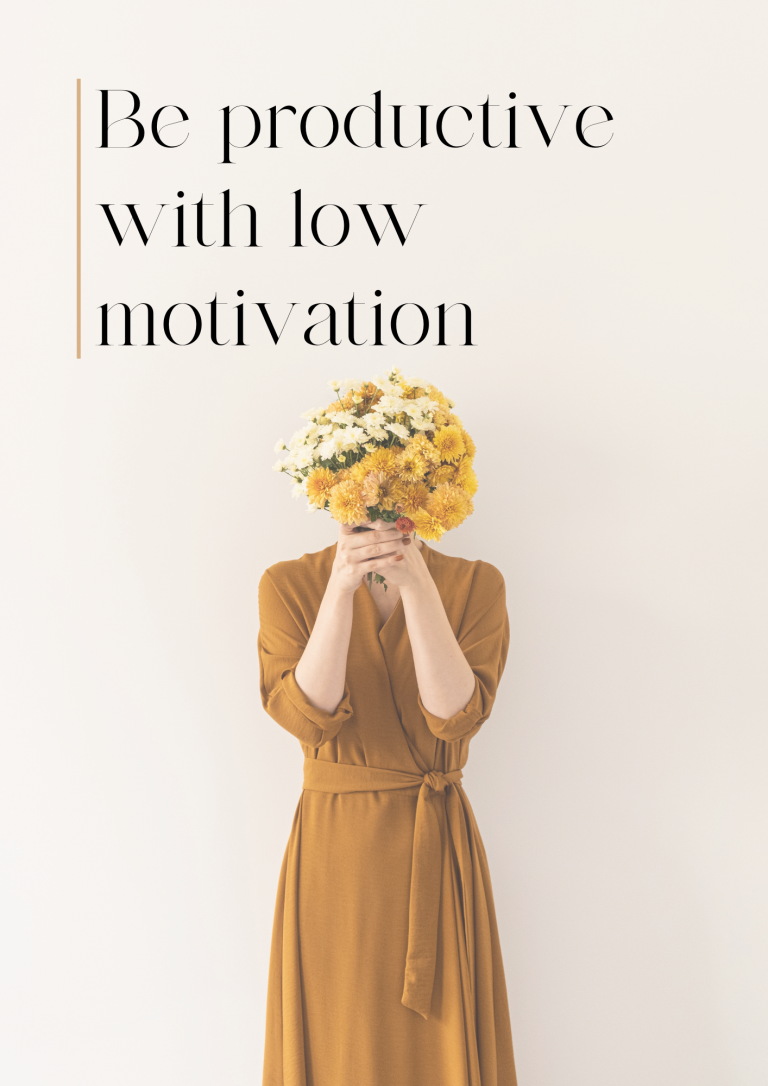6 Valuable tips for prioritising your well-being
“This post may contain affiliate links. If you decide to purchase through my links, I will get a small commission at no extra cost to you. Read the full disclosure here. “
Prioritising your well-being in a world that demands so much from each of us can sometimes feel like an insurmountable obstacle.
When work, family, friends, and other responsibilities consume your time, and you feel overwhelmed by appointments, meetings, and deadlines, it can be a real temptation to put yourself and your well-being at the bottom of your list of priorities.
Therefore, we’ll discuss the importance of prioritizing your well-being, and I’ll offer you six valuable pieces of advice on how to work on your well-being with ease.
What does well-being mean?
Before we dive into today’s topic, let’s discuss the meaning of well-being first. No matter what topic you do your research on, understanding what a term means usually makes it easier to find proper information and advice that can support you in your journey ahead.
Well-being /ˌwelˈbiː.ɪŋ/
Well-being refers to the state of being physically and mentally healthy and feeling happy. Being healthy means feeling comfortable in your body, having sufficient energy to accomplish tasks, and engaging in activities without experiencing pain or discomfort. Additionally, it refers to the absence of disease or sickness.
On the other hand, happiness is characterized by feelings of contentment and pure joy resulting from various circumstances. But most importantly, happiness comes from within. It’s mostly about internal factors, such as your perception of the world around you, that dictate the extent of joy you’re capable of experiencing.
As great as this may sound, for many people, it is indeed a considerable challenge to feel both healthy and happy simultaneously. Many believe these feelings are based mainly on luck or external factors and may blame fate or higher powers when they seem to be out of reach.
When was the last time you invested time in your well-being?
If well-being is not a well-implemented routine that is nourished and maintained regularly, it is, just like anything else in life, meant to weaken and eventually fade away. It’s we who give the things in our lives, whether material things or the things existing in our inner world, the power to lead us either towards victory or failure. Even if it seems beyond our control, there are indeed many things one can do to increase the chances of experiencing a greater state of well-being and all the fantastic things that accompany it.
Let’s discuss six valuable tips for prioritizing your well-being.

1. Calm your mind with meditation
What I love about meditation is that it’s the absolute opposite of what the world tells us that success is.
It starts in school, where students learn that good marks are the most important for success. Therefore, we understand what we must do to get good grades and succeed. After school, it continues. A successful employee is efficient, productive, and capable of delivering results.
Everything we do usually needs to culminate in a massive, visible result to be considered a success. No matter the area in our lives. There are always expectations, and there is always a need for a result.
Through meditation, you learn a different kind of success.
Meditation does the exact opposite. You will never see any visible outcome by practising meditation because this is different from how meditation works. It all happens in your inner world. And you do not practice meditation because you want to create one more thing in the outer world, as we tend to do every day in our day-to-day experiences.
Through meditation, you become still and let go of all material things, including your thoughts and emotions, for a mere moment. You practice simply being in the present moment without bringing ideas from your past into the present and without projecting the future. By focusing on simply being there with yourself for a few minutes, you acknowledge that that’s enough for now. There is no need for more or for difference.
By practising meditation, you bring order into the chaos of your mind. You will feel calmer than ever before, and eventually, you will see a change in your life. You will regain control over your mind, over the thoughts you think, the feelings you experience, and the words you speak. And regaining control over your mind equals control over your life, which can help you improve your well-being and feel happier and healthier.
Take care of yourself while finding support.
There are numerous mental health apps available online that can support you on your journey towards enhanced mental clarity, as meditation has the power to do. Therefore, you’re never alone on your journey, and help and support are available if you wish to access them.
However, I want you to be aware that, although numerous useful apps are available, there are also dangers associated with internet use, especially when it comes to sensitive topics like mental health. It’s crucial for you to inform yourself and to use the power of the World Wide Web wisely. Thankfully, there are ways for you to protect yourself, allowing you to focus on the crucial things in life – your well-being. If you wish to learn more about internet safety regarding mental health apps, you can find a fantastic blog post regarding this topic here.
Start with breath work.
For some, meditation may be too difficult at first, as it can get chaotic in your mind. Sitting in peaceful silence with yourself for an extended period typically requires considerable practice and discipline. If meditation is too much of a commitment for you to begin with, there is always the possibility of starting smaller. You can achieve this by practicing breathwork instead.
Breathwork utilizes controlled breathing techniques to achieve mental clarity and peace of mind. It’s much more manageable than meditation, especially at the beginning, when meditation can be overwhelming to incorporate into your daily routine.
Initially, it can be as simple as taking a few conscious and controlled breaths in the morning and/or evening, sitting in a quiet room, closing your eyes, and feeling how the air enters and leaves your body. Doing these one or two times a day for 20 to 30 breaths can make a huge difference. And by using this method, you gently learn how meditation can work for you, as you learn to focus your attention on one thing — breathing — for a few minutes at a time.
2. Move your body regularly
Regular physical activity is one of the healthiest habits you can incorporate into your daily routine. Because moving your body regularly helps you not only maintain a healthy body, but also recover after a period when your body is not at its best.
However, it also helps to get stuck energy flowing again. Discussing energy and our human bodies is something that many find difficult to imagine. The best way to see the connection here is through proper stretching. Usually, after you’ve moved your body for a bit, you can immediately recognize a difference in your ability to move. Everything feels a little smoother, a little more in balance.
Your body craves movement.
Your body naturally craves movement. This is what it was created for: to transport you from one place to another, so that you can experience a human life on earth. But of course, this looks entirely different for each of us, because we’re all unique and so are our bodies. Yet, I want you to remember that our bodies were never meant to sit still for hours on end, as is common these days with all the sedentary jobs we acquire and the sedentary hobbies we entertain ourselves with, such as watching TV, reading books, playing video games, and using social media.
Consider what proper movement looks like for you.
Moving our bodies looks different for each of us, and this is perfectly fine. Therefore, you must determine for yourself how you’d like to move your body. Nevertheless, there are official suggestions about what healthy regular movement for your body looks like. The World Health Organization’s official guidelines for engaging in physical activity to a healthy extent are a minimum of 150 minutes of moderate-intensity movement per week.
What is moderate-intensity movement?
Moderate-intensity movement means to be active, yet not so much that it’s overly exhausting. This means that your focus should be on being active rather than tiring yourself with your workout. You should feel that you’re actively moving your body, but not to the extent of feeling drained or exhausted.
A good start for moderate-intensity movements is taking walks in nature. As human beings, we’re created to walk. Therefore, taking our bodies for regular walks is an excellent start towards improved health and, consequently, overall well-being.
One note about physical activity:
Especially when you’re just starting with your well-being journey, moving your body regularly can feel like a literal mountain climb. Please take the 150-minute guideline as a recommendation, not as a requirement. One hundred fifty minutes per week translates into about 20 minutes per day. Yet, twenty minutes of activity can feel excruciating if you have to get used to regular physical activity first.
Therefore, it’s best if you start small. If twenty minutes feels too much, then you do what feels doable. Because at the end of the day, what matters only is the actual movement you did, and not what’s officially recommended. And the truth is, that more often, if something feels overwhelming, taking the first step becomes nearly impossible.
Please be kind to yourself, and start with whatever feels possible for you. If this means that you do five to ten-minute walks, even without leaving your apartment, that’s better than doing nothing. Because in the end, it’ll all add up.
Find something you enjoy doing.
Regular physical activity can only be effective if you find something you enjoy. This means that you can do anything you like. If this means doing Yoga, Pilates, dancing, inline skating, team sports, bicycling, or anything else, that’s fantastic!
And let this be your gentle reminder: You don’t have to go to the gym if you don’t enjoy it, even if this is also a valid option for regular physical activity. Just because something is trending right now doesn’t mean that you must participate. If you detest doing something, guess what? You won’t be able to establish a new routine. Because why would you? If you don’t like something, you will have to use significantly more of your willpower and daily energy to force yourself to do it. You can only incorporate a routine if it feels manageable and reasonable for you.
Treat your body with kindness.
If you treat your body with kindness and love and move it daily, it has a much easier time detoxifying, providing your cells with all the nutrients they need, and so much more. Moving your body moderately daily is the best way to start prioritising your well-being, and it’s also an act of self-love, because your body deserves to be moved.
However, please keep in mind that you don’t have to get overly concerned about movement. It can be as simple as taking daily walks outside. This will help you significantly impact your well-being.
3. Allow yourself to be your priority
There is no way around it: if your goal is to prioritize your well-being, you have to start prioritizing yourself as well. You cannot implement a new routine around well-being if, in reality, you are at the bottom of your priority list. It simply does not work like this. Sometimes, what you have to do first is to get your priorities right to change your perception of your reality for the better.
You deserve to prioritize yourself.
Especially when it comes to well-being and how prioritizing this one thing can influence our experience of health and happiness, we often get stuck in unconscious mindsets that perpetuate false beliefs, such as the notion that we do not deserve to feel healthy and happy. But listen to me, when I tell you: you deserve more than anything to be your priority.
You deserve to experience happiness and health over anything, and it’s more than okay to start prioritizing the things in life that give you a feeling of belonging and peace of mind. And more than anything, it’s OK to let go of anything that stands in the way of you finding compassion for yourself again.
Let go of anything that does not resonate with your current self.
Letting go is one of the hardest things one can do in life. Yet often it’s precisely what’s in your way of you finding the path towards your higher self – the version of you that already knows what your current self is just about to figure out.
Therefore, no matter what mental health gurus all around the world are telling you about letting go, it’s freaking hard. It hurts every time, even though it gets easier with practice, and the moment you let go of something that does not suit you entirely, you’ll feel lighter and more grounded in yourself. Yet, even though letting go is sometimes necessary, it’s nothing that can be done easily. Because if it were easy, everyone would do it.
To prioritise your well-being, you must allow yourself to be your priority.
To stay on top of your priority list, you must sacrifice other things that try to distract you from your intentions. This includes saying no from time to time. Even if it breaks your heart at first, to say no to someone or something you used to say yes to every time they’d asked, sometimes you must say no to fixed components of your current life to be able to say yes to yourself and to the future version of you you’ve started to build.
If they love you, they’ll understand.
Telling a loved one no is probably one of the most devastating things in life. But when it comes to your well-being, sometimes it’s necessary to focus on yourself instead of others, because only if your cup is full can you refill the cups of those around you.
It’s neither selfish nor rude, even if it perhaps feels just like you’re the evilest person in the room while declining for the first time. But rest assured that the feeling of regret while saying no to a loved one only exists in your head.
Because if the people you seemingly disappoint love you as much as you love them, they will celebrate your no, even if you feel like grieving your old self. Because they know that saying no to them means a big yes for yourself. And your loved ones want you to feel great, too. And besides, they’re the ones benefiting from you feeling your very best just as much as you do.
So, please think of yourself as a person just as important as those you love the most. As soon as it’s no longer about anything else in life, but about your own, you can start prioritizing your well-being and begin to feel healthier and happier.
4. Practice positive self-talk
If you want to prioritise your well-being, there is no way around it, but you must start with positive self-talk. The words you tell yourself inwardly have way too much power over how you feel and perceive yourself for you to neglect the self-talk you participate in daily, whether you’re aware of it or not.
Positive self-talk needs practice.
Suppose you’ve developed the habit of constantly blaming yourself for everything that goes wrong and consistently talk yourself down instead of uplifting yourself. In that case, it can never lead to a feeling of happiness or improved mental health. Negative self-talk comes solely from practice. You’re neither born with it nor is it something you’ve inherited.
The good news is that negative self-talk can be overcome.
You can overcome negative self-talk by shifting your focus. Positive self-talk involves a lot of training. And training means that you need to practice positive self-talk repeatedly until you can internalise it and make it your second nature.
Every change you make feels stiff initially since it’s unknown and you have no experience with the consequences. But you can do it! You can change your habit from an overall negative self-talk to a positive and vibrant one. To practice positive self-talk, it is crucial first to become aware of the negative things you say to yourself and realize that these words can harm your overall well-being.
Mostly it’s some form of these sentences:
- “I’m not good enough.”
- “I’m not smart enough.”
- “I’m not beautiful enough.”
- “I’m weak.”
- “I’m stupid.”
- “I deserve this to happen to me.”
- “I will never be as successful as they are.”
- “It’s hopeless.”
- …
As you can see, many sentences involve the word ‘not,’ since negative self-talk mainly occurs because we compare ourselves with others. Or it’s what we’ve “learned” from others.
It could be family members who told us such harmful things unintentionally or even intentionally, and we believed them. Friends who say the same things about themselves, and we’ve learned to copy them. Sometimes we adopt such counterproductive behaviour from the media or even social media. Regardless of its origin, please remember that it’s not your fault. However, it’s your responsibility to change it whenever you become aware of it.
Be aware of what information you consume.
The most crucial realization about negative self-talk is that it’s not a reflection of reality. Let me get straightforward with you: These thoughts only exist in your mind. Negative self-talk does not reflect reality. It’s an illusion we all fell for. Just because you think you are unworthy and unloved doesn’t make it accurate. But I know that how you feel about these beliefs can make them very real for you.
You deserve to experience compassion and kindness.
Let me tell you this: just because it feels natural to feel bad about yourself now, it doesn’t mean you can never feel different. If the negative self-talk and everything that comes with it is not serving you today – the feeling, the thoughts, the words, the behaviour – let go of them and change them for the better.
You can start now, at this very moment, to treat yourself with more compassion and kindness than ever before. But it’s your decision alone. And I know it’s a tough one to make. Change is always frightening because it is unknown, even if it helps you feel your best in the future.
Therefore, make it a daily habit to show up for yourself and prioritize your well-being. This is one of the most effective ways to start prioritizing your well-being.
5. Prioritise sleep
When we sleep, we not only process the day behind us, but sleep is also crucial for the maintenance of the brain and body, as well as providing our bodies with the necessary time to detoxify and allow our organism to repair and rebuild broken or old cells. Therefore, sleep has a significant impact on all of us when it comes to prioritizing our well-being.
Prioritizing sleep is always a good idea.
Whether you actively plan to improve your overall well-being or have different priorities in your life that require all your attention at the moment, focusing on a balanced sleep routine is always a great idea. Getting high-quality sleep and enough of it is essential for regenerating your body throughout the night, so that your body can serve you well when the next morning arises. When talking about the benefits of getting enough sleep, it’s likewise crucial to know about the downsides of a lack of sleep.
Sleep deprivation and insomnia.
Sleep deprivation and insomnia are two terms often mentioned when talking about a lack of sleep and its consequences. While insomnia describes “a condition of being unable to sleep, over a period of time,” sleep deprivation, on the other hand, translates into “a condition of not having had enough sleep or of being prevented from having enough sleep, especially for several days or more.”
The symptoms of sleep deprivation can start as early as after a few nights of lacking proper sleep. It includes a variety of different adverse side effects, varying in their severity. From affecting your heart and circulatory systems, to metabolic, nervous, or immune systems, the palette of possible consequences is broad. Especially your mental health and your brain itself can suffer severely from a lack of sleep.
Everybody needs sleep.
Besides being a fictional character straight out of a fantasy novel, every human being needs to sleep regularly and adequately to maintain physical and mental health. And perhaps you can also, like many other people, relate to what it feels like to lack sleep through personal experiences. You suddenly feel like you can no longer focus and start to struggle with concentration, often feeling tired throughout the day.
Notably, a chronic lack of sleep (lasting several weeks or months) is associated with significant physical issues; therefore, it is essential to address this when discussing prioritizing your well-being. A lack of sleep is linked to many diseases, such as obesity, diabetes, cardiovascular diseases, and hypertension, as well as anxiety and depression symptoms.
Take your sleep quality seriously.
Here are some tips for a balanced sleep rhythm:
1. Eating habits
Be conscious about when you consume your last meal of the day. Allow your body enough time (ideally, three or more hours) to digest before going to bed. Otherwise, you risk feeling uncomfortable throughout the night, which can affect your sleep.
2. Electronic devices
Avoid using electronic devices at night, as the artificial light they emit (from TV, mobile phones, etc.) can confuse your brain about whether it’s time to sleep or not. This can make it harder to fall asleep, leading to insomnia.
3. Excessive exercise
The same applies to excessive exercise in the evening. Through highly physical activity, your body can become alert, and proper sleep at night can become problematic, as your body needs time to calm down after a workout.
4. Caffeine and alcohol
Caffeine and alcohol are both substances that can negatively impact your organism, making it harder to fall asleep and to sleep through the night, easily causing problems with your sleep rhythm.
5. Sleep duration
Plan enough time to get adequate amounts of sleep every night. It’s officially recommended to get around seven to nine hours of sleep per night. However, the ideal amount of sleep is a personal matter and varies from person to person.
6. The circadian rhythm
It’s best practice to go to bed before midnight. Scientists have proposed several explanations for the benefits of this approach. Mostly, it’s because you need to be in sync with your day and night rhythm (circadian rhythm). Simply speaking, your body knows when it’s night, and if you work against it, you will experience the consequences.
7. Artificial lights
Try to sleep in a dark room if possible. Artificial lights can affect your ability to sleep well at night, as the lights can negatively impact your melatonin production, which can cause problematic sleep patterns.
8. Hydration
Be mindful of your hydration throughout the day, but avoid excessive drinking at night. Proper hydration helps your body detoxify during the overnight hours. However, drinking too much water before bed increases the likelihood of waking up due to a full bladder. To maintain good sleep quality, stay hydrated throughout the day and limit fluid intake in the evening.
However, remember that these are general suggestions. If you struggle with your sleep, it’s best practice to consult your healthcare provider.
6. Practice gratitude
Prioritising your well-being and practicing gratitude have a lot in common. Both are about stepping away from the increasingly prevalent trend we’re currently facing. Gratitude forces you to realize the abundance you’re already surrounded by. Prioritizing your well-being requires acknowledging that all the tools you need to succeed are already within your possession. It’s the realization that there is nothing out there that is better than what’s right in front of you.
Is your cup full or empty?
For some people, their cup seems to be always full, no matter what they face in their lives at the moment. Yet, for others, the opposite appears to be the case. What’s the difference between the two groups?
The answer is gratitude, whether it is practiced unconsciously or consciously. It’s the way one starts their day, and it’s hidden in the daily miracles one allows themselves to witness. If your cup is always half empty, and you never allow yourself to see what your life already has to offer, your focus may be on the negative side of things. Some may refer to this as the realistic perspective.
Does it serve you?
The question you must answer for yourself is neither about how full or empty your cup is nor whether how you perceive the world around you is a realistic one. The real question is this: Does your perspective serve you? Is it serving you truly to be realistic, no matter what?
And if your answer is yes, then ask yourself why it feels safer to see mostly the negative aspects of life instead of the positive?
The thing with gratitude is that just because you can acknowledge the positive things in your life, it doesn’t mean you have to ignore what’s not working for you. Quite the opposite is the case.
The more you focus your attention on all the miracles your life offers you, the more similar opportunities you start to attract, because with practicing gratitude, you train your brain to acknowledge what’s already good.
Where focus goes, energy flows.
This quote suggests that your attention and focus have a profound impact on your life experiences. What you sense, think, feel, talk about, and how you approach your day can be influenced by either positive or negative emotions, depending on where you choose to direct your focus.
And it is your decision after all. No matter how much life seems to be happening to you, in fact, it happens through you. The more you are aware of this simple truth, the sooner you’ll realize the importance of practicing gratitude and prioritizing your well-being.
The moment you actively shift your focus from the negativity around you, even though negative aspects will continue to coexist in your life, to practicing gratitude, even if you can only see the good in your daily coffee, you gently guide your mind to see the good things in your life. And with a focus on positivity, you are finally in control over whether you make a decision for or against accepting the cup as half-empty. And this is what this is all about – you being in control over the decisions you make in life.
Consistency is the key to success.
This shift, of course, only happens after some time and with continued practice. However, suppose you’re consistent with your intentions and practice gratitude day after day, and realize how crucial consistency truly is for your future success. In that case, your focus will soon begin to shift.
AD
The most straightforward way to start practicing gratitude, if the concept is still new to you, is by working with a gratitude journal. You could choose any journal that is available to you at the market, but you could also select the Be Gloriously You journal. I created this gratitude and mindfulness journal to offer you a tool that can support you on your journey. I have been using it daily for over a year now, and I’m more than happy with my progress.
This gratitude and mindfulness journal will confront you daily with powerful questions that guide you in the direction you intend to. If you enjoy answering questions as much as I do and prefer a guided journal over a blank one, you can give this one a try here.
You deserve to prioritize your well-being over anything else.
Prioritizing your well-being and learning all the necessary skills is like learning how to walk. You start small with tiny steps, sometimes you inevitably fall, but stand up afterwards and continue pursuing your path. Well-being, like anything else in life, does not happen without change. Yet, change does not have to be this frightening abyss, these dark waters, you never know what’s beyond the surface. You can start as small as you wish with changing what’s known to you right now.
Nevertheless, feeling healthy and happy, and therefore, experiencing what well-being is like, requires making a decision after all. And with that comes the responsibility to set your priorities in life right.
It’s time to take action.
Like anything else in life, it’s difficult to wait for the perfect moment to arise, a moment you feel ready to start acting on your desires. Let me tell you, today is the ideal day to start with your first steps towards a new reality. It’s you who decides whether the perfect moment for change is there, or if you’d like to wait a little longer. But be aware, tomorrow will always be something that’s happening in the future, out of your reach, out of your control. Only today, only the present, is there for you to change who you want to be, and how you’d like to feel.
Therefore, start prioritizing your well-being today and take the first step. Even though you may feel unprepared, even if you feel anxious about what’s to come. Yet, if you take this very first step, unprepared, full of emotions, imperfect, it’s anyway a step you’ve already taken. And in the end, it’s all about what you actually did, and not about all the things you thought about and made plans for. I know you can do it, step by step, move after move. Always remember, you’re so much more capable than you may believe yourself to be.
Until next time,
Keep evolving into your most glorious self!











